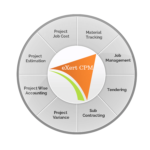In today’s rapidly evolving business landscape, artificial intelligence (AI) has emerged as a game-changing tool. It is revolutionizing the way companies approach planning and innovation. This blog explores how AI supports business planning innovation and shapes the future of industries worldwide.
The Rise of AI in Business Planning
Transforming Business Strategies
Artificial intelligence has become an integral part of modern business strategies. It is transforming how organizations make decisions and plan for the future.
Leveraging Data for Insights
AI’s ability to process vast amounts of data is being leveraged by companies to gain valuable insights and make informed choices.
Adoption of AI-Powered Tools
Companies are increasingly adopting AI-powered tools for planning processes, analyzing market trends, and understanding consumer behaviour. These tools provide a comprehensive view of the operating environment, enabling organizations to develop more effective and innovative strategies.
Key Benefits of AI in Business Planning
1. Enhanced Data Analysis
- Faster processing of large datasets
- Identification of hidden patterns and correlations
- More accurate predictions and forecasts
2. Improved Decision-Making
- Data-driven insights for strategic choices
- Reduced human bias in decision-making processes
- Real-time adjustments based on changing market conditions
3. Increased Efficiency
- Automation of repetitive tasks
- Streamlined planning processes
- Faster response to market changes
See also: The Power of AI In Strategic Business Planning
4. Cost Reduction
- Optimized resource allocation
- Reduced errors and inefficiencies
- Better risk management
AI-Powered Tools for Business Planning
1. Predictive Analytics
AI algorithms analyze historical data and external factors to forecast future trends, enabling informed decision-making.
2. Natural Language Processing (NLP)
NLP tools extract valuable insights from unstructured data like customer feedback, social media, and news articles.
3. Machine Learning Algorithms
Machine learning algorithms identify patterns in data and improve over time, ensuring more accurate predictions and decisions.
4. Robotic Process Automation (RPA)
RPA tools automate repetitive tasks, freeing up human resources for strategic activities and reducing errors.
AI-Driven Innovation in Various Industries
1. Manufacturing
AI optimizes production processes, predicts demand, and improves quality control, leading to cost savings and efficiency.
2. Retail
Retailers use AI for personalized customer experiences and optimized inventory management, enhancing customer satisfaction and sales.
See also: The Future of AI: How AI Is Changing the World
3. Healthcare
AI aids in analyzing patient data, improving diagnoses, and personalizing treatment plans, revolutionizing healthcare planning.
4. Financial Services
Banks leverage AI for risk assessment, fraud detection, and portfolio management, enhancing financial planning.
5. Transportation and Logistics
AI optimizes route planning and fleet management, reducing costs and improving delivery times.
Challenges in Implementing AI for Business Planning
1. Data Quality and Availability
High-quality, diverse data is essential for effective AI systems, but ensuring accuracy is challenging.
2. Integration with Existing Systems
Combining AI tools with legacy systems can be complex and resource-intensive.
3. Ethical Concerns
AI raises ethical issues, including bias in algorithms and data privacy.
4. Skill Gap
The lack of expertise in AI and data science poses a challenge for many organizations.
5. Cost of Implementation
High initial investment in AI solutions can be a barrier, particularly for small businesses.
Best Practices for AI-Driven Business Planning Innovation
1. Define Clear Objectives
Set specific goals and expectations for AI implementation.
2. Ensure Data Quality
Invest in data cleaning and management to improve AI-driven insights.
See also: How Can Social Media Help a Business Grow
3. Foster a Data-Driven Culture
Promote AI literacy and data-driven decision-making within the organization.
4. Start Small and Scale
Begin with pilot projects and expand based on success metrics.
5. Prioritize Ethics and Transparency
Establish ethical guidelines and ensure transparency in AI decision-making.
6. Collaborate with Experts
Partner with AI specialists for expertise and guidance.
7. Continuously Monitor and Improve
Assess AI performance regularly and make necessary adjustments for improvement.
The Future of AI in Business Planning Innovation
1. Advanced Predictive Capabilities
AI systems will deliver even more accurate forecasts for better decision-making.
2. Increased Automation
Automation of more planning processes will free human resources for creative tasks.
3. Enhanced Personalization
AI will drive hyper-personalized strategies for improved customer experiences.
4. Augmented Intelligence
AI will complement human intelligence, enhancing planners’ strategic abilities.
5. Ethical AI Frameworks
Developing robust ethical frameworks will address concerns about bias and privacy.
6. Cross-Industry Collaboration
AI will foster collaboration between industries, leading to innovative solutions.
Final Thoughts
Artificial intelligence is revolutionizing business planning and innovation, offering unprecedented opportunities for organizations to stay competitive. By addressing challenges and adopting best practices, businesses can fully harness the potential of AI. The future of business planning is here, and it’s powered by AI.












